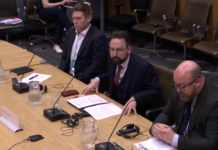Achieving financial wellness is a journey that requires careful preparation, focused execution, and ongoing education. Individuals may achieve financial stability and peace of mind by learning essential skills such as budgeting, saving, spending, and investing. Tools like Albert can help streamline this process, guiding the effective management of finances. This article investigates realistic ways to improve your financial situation.
- Budgeting: The Foundation of Financial Wellness
Developing a budget is the foundation of good money management. It gives you a comprehensive view of your income and spending, allowing you to make more educated financial decisions.
Track Income and Costs
Start by recording all sources of income and categorizing costs as fixed expenses (e.g., rent, utilities) or variable expenses(e.g., entertainment, dining out). This method emphasizes spending habits and identifies possibilities for improvement.
Set Financial Goals
Establish short- and long-term financial targets, such as creating an emergency fund, saving for a down payment, and planning retirement. Aligning your budget with these objectives improves motivation and responsibility.
Use Budgeting Tools
Technology can help you streamline your budgeting process. For example, Albert’s family budgeting software provides personalized financial advice to customers, allowing them to manage their money better.
- Saving: Establishing a Financial Safety Net
Developing a strong savings plan is critical for financial stability and accomplishing future goals.
Emergency Fund
Create an emergency fund with three to six months’ worth of living costs to handle unforeseen situations such as medical emergencies or job loss. This fund is a financial safety net, reducing dependency on high-interest loans.
Automate Savings
To maintain continuous contributions, set up automatic payments into your savings account. This strategy reduces the urge to spend while encouraging disciplined saving practices.
High-Yield Savings Accounts
Consider putting your money in bank accounts with higher interest rates to maximize long-term profits.
- Spending: Making Conscious Choices
Mindful spending is critical for financial wellness and avoiding unneeded debt.
Differentiate Needs and Wants
Prioritise spending on necessities above frivolous products. This difference aids in controlling impulsive purchases and aligning expenditures with financial objectives.
Use the 50/30/20 Rule
Put 50% of your income towards needs, 30% towards discretionary expenditure, and 20% towards savings and debt repayment. This framework guarantees that financial management is conducted in a balanced manner.
Review and Adjust
Evaluate your spending patterns regularly and make any required changes to stay under your budget.
- Investing: Building Wealth over Time
Investing is an effective instrument for accumulating money and meeting long-term financial goals.
Educate Yourself
Increase your financial literacy by studying various investment vehicles, including stocks, bonds, and mutual funds. Understanding risk tolerance and investing horizons is critical for making sound decisions.
Do Retirement Planning
Begin saving for retirement early to take advantage of compound interest. Contributing to employer-sponsored retirement plans or individual retirement accounts (IRAs) can result in tax breaks and long-term growth opportunities.
Seek Professional Advice
Consult a financial counselor to create a personal investing plan for your goals and risk tolerance. Professional financial advisors can help you navigate complicated financial markets and optimize profits.
- Debt Management: Financial Freedom Strategies.
Effective debt management and reduction are essential components of financial wellbeing.
Prioritize High-Interest Debt
Pay off debts with the highest interest rates, such as credit cards. This strategy reduces interest costs while also accelerating debt repayment.
Debt Repayment Methods
Use tactics such as the debt snowball approach, which includes paying off lesser bills first to create momentum, or the debt avalanche method, which focuses on loans with the highest interest rates for maximum savings.
Avoid Accumulating New Debt
Use credit responsibly and avoid taking on new debt unless essential. Living within your means is critical to achieving financial security.
- Continuous Financial Education: Empowering Informed Decisions
Staying knowledgeable about personal money improves your capacity to make wise financial decisions.
Read Personal Finance Literature
Books like Dave Ramsey’s “The Total Money Makeover” provide helpful insights into budgeting and wealth-building tactics.
Attend Workshops and Seminars
Participate in financial literacy classes to better grasp money management techniques.
Use Online Resources
Look into credible financial websites and tools that offer up-to-date information and individualized guidance.
- Protecting Your Financial Future: Estate Planning and Insurance
Protecting your assets and preparing for the future are key components of financial health.
Insurance Coverage
Ensure you have enough insurance plans, such as health, disability, and home insurance, along with smart banking strategies to protect yourself from unexpected bills.
Estate Planning
Create an estate plan, which includes a will and power of attorney, to handle your assets and healthcare decisions in the case of incapacity.
- Having Open Financial Conversations
Openly discussing finances with family members creates an environment conducive to accomplishing financial objectives.
Arrange Family Meetings
Discuss financial objectives, budgets, and spending patterns with your family to guarantee alignment and commitment.
Educate Children
Teach children about saving, budgeting, and the importance of money from a young age.
- Managing and Adjusting Your Financial Plan
Regularly revisiting your financial plan ensures that it remains consistent with your changing objectives and circumstances.
Monthly Budget Reviews
Review your budget and spending once a month to find areas for improvement and celebrate triumphs.
Adjust Goals as Needed
Life events such as a new job, marriage, or the birth of a child may need changes to your financial strategy. Be adaptable and willing to change.
- Taking a Holistic Approach to Financial Wellness
Achieving financial wellness involves more than managing money; it also entails aligning one’s financial choices with one’s personal beliefs and life objectives.
Define Your Purpose
Determine what financial independence means to you and how it relates to your aspirations. This clarity helps you make better financial decisions and set priorities.
Balance Spending and Saving
While saving is vital, having fun is equally necessary. Allocate finances for leisure and enjoyable events, balancing current satisfaction and future security.
Practice Gratitude
Appreciating what you have may change your mentality from scarcity to plenty, lessening the desire to spend unneeded money and improving general well-being.
Conclusion
Mastering financial wellness is a continuous process that involves dedication, knowledge, and proactive management. You can create a solid financial future by following efficient budgeting, saving, spending, and investment advice. Remember that tools like Albert’s family budgeting software may give you individualized suggestions to help you along the way. To attain long-term financial stability, be knowledgeable and disciplined and link your financial habits with your life goals.
Help keep news FREE for our readers
Supporting your local community newspaper/online news outlet is crucial now more than ever. If you believe in independent journalism, then consider making a valuable contribution by making a one-time or monthly donation. We operate in rural areas where providing unbiased news can be challenging. Read More About Supporting The West Wales Chronicle






















